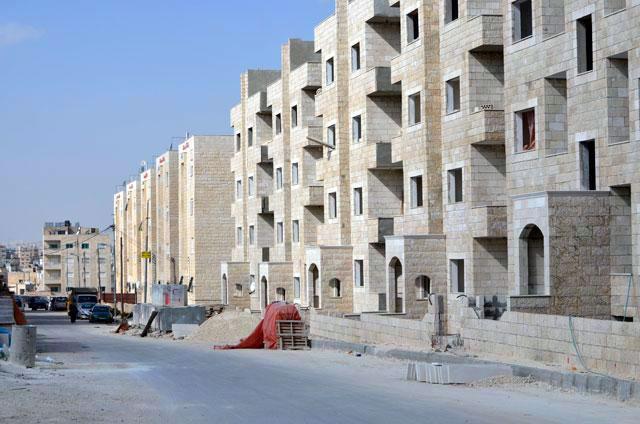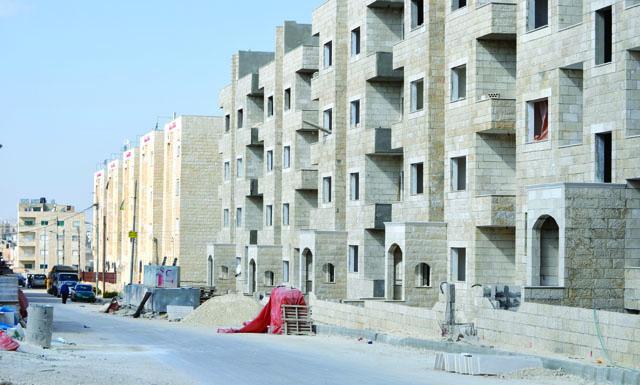You are here
'Low purchasing power main cause for real estate sector’s ailment'
By Bahaa Al Deen Al Nawas - Aug 06,2019 - Last updated at Aug 06,2019

Residential apartment buildings in the final stages of construction are seen in Amman in this recent photo (JT file photo)
AMMAN — Despite several recent measures taken by the government to rescue the ailing sector, the real estate’s trade volume continues to plummet, falling by 21 per cent during the first seven months of 2019, compared with the same period last year, according to figures issued by the Department of Statistics (DoS).
The trade volume stood at JD2.445 billion in the first seven months of this year, according to the DoS, while revenues decreased by 19 per cent compared with the same period in 2018, standing at JD127.174 million.
Jordan Housing Developers Association President Zuhair Omari told The Jordan Times on Tuesday that the sector has been witnessing a steep regression since 2015, citing the drop in Jordanians’ purchasing power as the main cause for the market’s troubles.
"The living costs are higher and the conditions in the region are tougher, in addition to many other factors,” Omari said, noting that as economic conditions in the Arab Gulf also become tougher, expatriates’ role in the market has also been regressed.
Moreover, the association president pointed to the high interest rate on housing loans, reiterating the call for reduced rates through the Central Bank of Jordan, which will help alleviate the fears of the investors as well as those who wish to become homeowners.
The total revenues on apartments during the first seven months of 2019 also dropped by 21 per cent, compared with the same period last year, amounting to JD32.5 million, according to the DoS.
The estimated value of non-Jordanians’ sales in the sector decreased by 15 per cent for the same period of comparison, standing at JD124.2 million.
To mitigate the situation, Omari suggested steps that the government could take, including exempting the first 150 square metres of an apartment from registration fees and scrapping the property transfer fees for apartments of all sizes, as such exemptions are currently restricted to apartments of up to 180 square metres only.
In light of the increase in land prices, Omari also suggested lifting the cap on the number of stories existing buildings are permitted to have.
Earlier in July, Omari said that helping the real-estate sector “does not only resolve people’s housing issues, but also helps stimulate more than 150 [other] sectors”.
The association president added that recent measures and amendments to the real estate law have been a “great help”, but are not enough to reverse the sector’s downward trend.
At a workshop held by the Justice Ministry in the beginning of July, Prime Minister Omar Razzaz said that the real estate sector comprises 60 per cent of assets in Jordan, adding that any hindrances facing the real estate sector would have implications on the national economy.
Related Articles
AMMAN — The volume of trade in the real estate sector has increased by around 45 per cent since the end of October when compared with the sa
AMMAN — The Kingdom’s GDP grew by 1.3 per cent at fixed market prices in the first quarter of 2020, compared with the same period of 2019, t
AMMAN — Trade in the real estate sector in the Kingdom during the first nine months of 2019 totalled JD3.183 billion, marking a 19-per cent


















